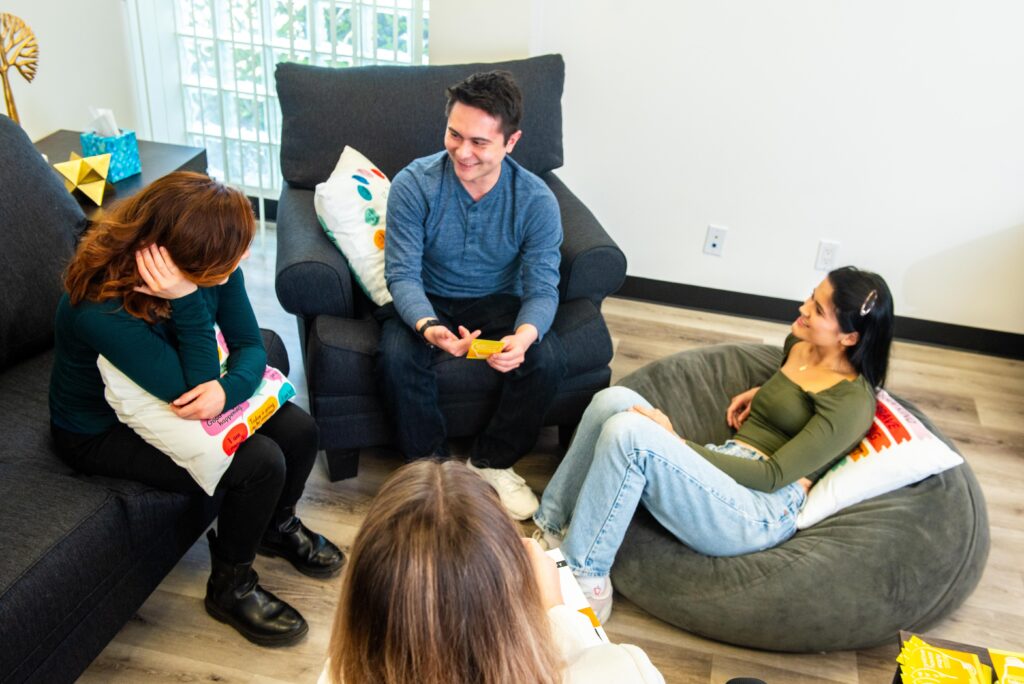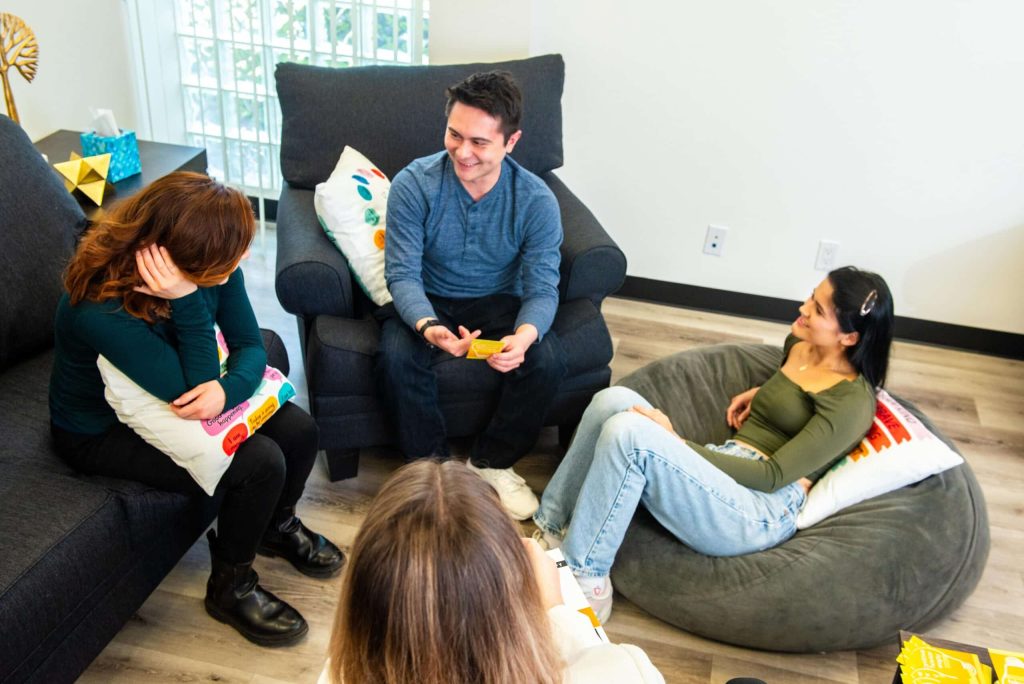The Power of Peer Support: Finding Community in Mental Health Recovery

In the journey of mental health recovery, the path often feels lonely and daunting. It’s full of emotions, treatments, setbacks, and victories, all intertwined your journey toward healing. However, amid challenges, there’s a bright light that can offer comfort: peer support. This unique form of camaraderie isn’t just comforting; it’s instrumental in transforming lives by fostering a sense of empowerment, understanding, and—above all—community.
What is Peer Support?
Peer support is a cornerstone of mental health recovery, offering a lifeline of empathy, understanding, and shared experience. It’s the realization that you’re not alone in your struggles, that others have walked similar paths, and that together, there’s strength in solidarity. This mutual support system not only validates personal struggles but also reinforces the recovery process through empathetic connection. It’s about building a network that celebrates each step of progress and stands resilient during setbacks.
A Community of Understanding
One of the most significant aspects of peer support is the ability to connect with individuals who truly understand what you’re going through. Unlike well-meaning friends or family who may offer sympathy but lack firsthand experience, peers in recovery offer empathy born from their own battles with mental illness.
In these communities, there’s no need to explain the details of your condition or justify your feelings. Instead, there’s an unspoken understanding—a shared language of emotions and experiences that fosters genuine connection and validation.
Breaking the Stigma
Mental illness is often over-shadowed by stigma, leading many to suffer in silence for fear of judgment or misunderstanding. However, peer support groups create safe spaces where stigma fades away, replaced by acceptance and compassion.
In these environments, individuals can openly discuss their struggles without fear of shame or discrimination. It’s a reminder that mental illness is not a personal failing but a medical condition deserving of understanding and support.
Empowerment through Shared Experience
Navigating mental health challenges can feel overwhelming, but peer support offers a roadmap forged by those who’ve walked the same path. Through shared experiences, individuals learn coping strategies, gain insights into treatment options, and discover the resilience within themselves.
Peer support also encourages a sense of empowerment and strength. By seeing others overcome obstacles and reclaim their lives, individuals are inspired to believe in their own capacity for recovery. It’s a ripple effect of hope, each success story reinforcing the belief that healing is possible.

Finding Hope in Connection
Perhaps the most encouraging aspect of peer support is the sense of hope it instills. In the depths of mental illness, Hope might seem far away, but when you’re surrounded by peers, it becomes tangible.
Through shared laughter, tears, and triumphs, individuals realize they are not defined by their diagnoses. Instead, they are resilient individuals capable of growth and transformation. It’s a reminder that while mental health problems may shape their journey, it does not dictate their future.
In the landscape of mental health recovery, peer support stands as a beacon of hope, guiding individuals through the darkness toward a brighter tomorrow. It’s a testament to the power of connection, empathy, and shared experience in fostering healing and resilience.
Peer Support Compliments Professional Treatment
For people with severe mental health conditions, it’s important to note that a peer support program is meant to complement, not replace, professional mental health treatment. It works hand-in-hand with therapy, medication, and other forms of treatment, creating a robust support network. While professionals provide clinical interventions, peer support adds a layer of personal understanding and practical advice based on real-life experiences.
Where to Find Peer Support Groups
Various platforms and organizations offer resources to connect individuals seeking support. In this day and age, there are many virtual platforms and social media groups that offer online support groups. For those inclined towards in-person meetings, local community centers, hospitals, and mental health clinics often host or can direct you to support group sessions. If you’re unsure where to start, you can always ask your primary care doctor or therapist.
For anyone grappling with mental illness, seeking out peer support can be a transformative step on the path to recovery. Whether through outpatient support groups, online forums, or peer-led initiatives, finding community in shared struggle can make all the difference in the journey toward healing. After all, in the embrace of understanding hearts, even the heaviest burdens can feel a little lighter.
If you are ever in need of mental health treatment and emotional support, The Meadowglade Outpatient Center is a mental health resource serving the Conejo Valley. Our team can provide additional support and tailor a program to suit your specific needs. Our mental health services include a blend of evidence-based and creatives therapies. Don’t hesitate to contact our admissions team for assistance today.

